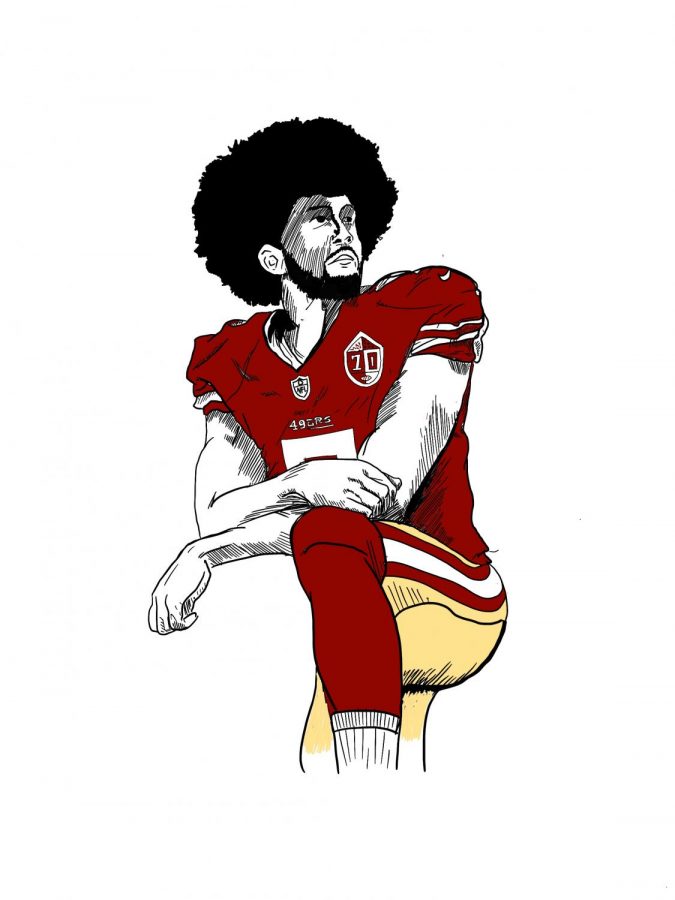As I watched the Super Bowl Halftime unfold, I faced a wave of conflicting emotions. On the one hand, it was delightful to have two Latina women headline a show of that style to Miami, a city that has a significant Latino population, and share it with the world. On the other hand, Shakira and Jennifer Lopez’s performance turned away from Colin Kaepernick’s ongoing protest, with the help of Jay-Z and Roc Nation.
Assistant professor of American Studies at Wellesley College and author Petra Rivera-Rideau wrote an article for the Washington Post that summed up some of the lingering feelings of the night. An essential point that Rivera-Rideau addressed was how both artists called for unity but failed to extend that sentiment to black communities.
Latinx people aren’t represented enough as it is in Hollywood and other media fields. Hence, whenever there is a moment of seismic representation, our communities erupt with glee and validation, which is a legitimate reason for rejoice. However, it is worth reflecting on what this particular celebration shrouds. The failure of their solidarity leaves room for improvement among celebrities but also fans of the stars and the NFL.
One way to do this is by taking note of the impacts of coalition-building led by The Black Panthers in the late 1960s. The Black Panthers helped to organize and inspire Latinx movements such as The Brown Berets and The Young Lords as well as other minority groups that became part of the Rainbow Coalition. The aid of The Black Panthers revolutionized the way communities organized free breakfast programs for children, clothing drives and other community events. Without the help of black communities to pave the way for Latinx people and other minorities to organize, it would have likely been a lonely and uphill battle. Recognizing their struggle as a broader one, The Black Panthers offered their hands with a vision of a unified future.
For those who look back at history with the belief that they would have been on the side of advocacy and justice, your moment is not there — it is now. More specifically, the way that the Latinx population can show solidarity with Kaepernick and his advocacy for black and brown communities is by flexing its economic power.
Jay-Z and Roc Nation were smart in selecting Latin superstars and shifting the focus to a demographic that is also increasingly monitored by advertisers and music trends. In a Forbes article released last year, Parker Morse wrote about the priorities of advertising and understanding Hispanic consumers. A 2018 Census report estimates that by 2060, the Hispanic population will be at 111 million.
The article foreshadows the changes of the Hispanic market in a drastic way. The extensive makeup of the Latinx population driving the market indicates it can be a tool for moments of solidarity, like in the case of Kaepernick’s boycott. If Latinx people refuse to support Latinx artists who perform at the NFL or withdraw support from the league altogether, it may provide increased pressure on them financially that could make a difference. Latinx communities should recognize that the power of the market is in our hands.
Jay-Z, Shakira and Jennifer Lopez have plenty of wealth, which allows them a place of privilege away from social issues like police brutality. The best way to get their attention is to go after what matters, which comes down to their wallets. If enough Latinx people came together and asked for the ears of their superstars and withheld their capital, the NFL might have to restrategize to maintain support among viewers. Who knows, maybe instead of pretending to care about other social issues the NFL could rehire Kaepernick, the very problem it’s been so desperately trying to deflect.
Kaepernick and his advocacy are forgotten if Latinx populations and other minority groups let momentary representation become its end goal instead of building solidarity. Judging by the way people outside Latinx culture responded to the performance, Latinx people need all the support they can get, but it’s earned by showing up when no one else will and not for any self-serving purposes.
I know it’s challenging to go against the grain, especially when there are stars that mean so much to our communities. It doesn’t have to be an alienating road. I’d argue that there are already people standing with Kapernick, but the stronger solidarity operates across intersections of classes and identities, the stronger it will hold.
Charlie Vargas is a senior studying journalism. Follow him on Twitter @CharieVargas19.







